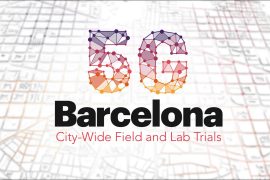The largest international technological company in the educational field, Moodle, has chosen Barcelona as the location to set up its first European headquarters. The open source learning platform founded in Perth (Australia) has more than 100,000 registered sites and more than 130 million users all over the globe.
The new Spanish Moodle HQ, located in Barcelona’s Eixample, in Rambla Catalunya, with a team of 40 employees, will be the company’s gateway for new opportunities in Europe. Moodle’s software is used as a key part of the operations for the main universities and thousands of schools, as well as other organizations such as United Nations, Google and World Vision.
Moodle’s software is used as a key part of the operations for the main universities and thousands of schools, as well as other organizations such as United Nations, Google and World Vision.
In an interview for The New Barcelona Post on the inauguration of its HQ in the Catalan capital city and the event MoodleMoot Spain, that gathered more than 300 professionals in the pedagogical and technological fields this summer, Dougiamas highlighted the decision of opening Moodle in Barcelona, as well as future challenges faced by the company and similar companies from the sector:
¿Why was Barcelona chosen to locate Moodle’s first European Headquarters?
First of all, I wanted to point out that our business model is far from similar to companies producing the same product, from Silicon Valley to all over the world. We are an open source company that generates software tools highly adaptable to every local reality. We can’t do that without the help of instructors. Barcelona was chosen as our first European HQ because it is an incredible city, with a great climate, which is very attractive to our employees. It is also a highly active city, technologically speaking. I like its attitude and its culture. Barcelona is active, responsible, motivated, and invests on talent and constant learning. In addition, Spain is the second country in the world with more registered Moodle sites, adding up to more than 8,000.
Barcelona’s HQ has opened before the company opened any HQ in the United States, are really Barcelona, Spain and Europe so strategically important for Moodle?
Yes. In terms of population, as I mentioned earlier, Spain is one of the top countries for registered sites. One of the reasons why we came here was its proximity with Europe and because it connects us with South America. In addition, Moodle aims to incorporate hard-working talent that I mentioned earlier as well.
Is this decision influenced by the entrance of its European Investor Education for the many, owned by the French multinational Decathlon?
Yes, of course, thanks to the entrance of this new member we are ready to face the investment to set up shop in Barcelona. Education for the many, owned by Decathlon, has a highly compatible mission and structure highly compatible with ours.
Regarding your mission, your motto is “empowering teachers to improve the world” and recently you have announced the creation of a big social network for instructors. What is the goal?
We consider that citizens should be able to make more of an impact on their governments. In this respect, the United Nations has established 17 goals for sustainable development of the planet. Among them, the main one revolves around inequality, as well as climate change, food safety, water sanitation, the refugee issue, data protection, work transformation, public health… The only way to overcome all these issues, like any issue, is by starting from the ground up. Citizens need to be conscious about these issues and become active figures to help solve them. We need many people like this. Quality education is the exclusive factor ensuring that more citizens with these traits arise, citizens that are more connected with their environment and committed to improve society. Education is of utmost importance and this is why we empower teachers in order to facilitate their work through a learning platform. The Moodle community comprises 5 values: education, transparency, integrity, respect and innovation.
What other challenges does education involve?
One of the challenges is assessing the quality of education. Another challenge is the great diversity of languages (we have already translated 155 packages and are still widening our scope). Also, to create an educative community, for that matter we are working to achieve that Moodle net becomes a social network for instructors. It will be an open and transparent network tailored-made for instructors, integrated in the Moodle site so that they can use it as a tool to communicate with each other, work together, share useful material…
What are the business challenges of the company?
We have reached a turning point. Many companies, among them Google or Microsoft, have entered our field and we need to think of ways to compete with them, not only as regards our philosophy but also in gross value and features. We have the sector’s trust with more than 104,000 registered sites (and many more non-registered), that account for a grand total of over 130 million users. We innovate, for instance, in terms of mobility, through Moodle Mobile, and our engineers are gradually designing more tools for students and instructors. Our goal is also to become a stronger brand and explain more clearly what open source is and how it can be utilized. Our main target is becoming self-sustainable. Many of the problems of the Silicon Valley’s approach is that sustainability is not a priority but only considered in retrospect. It is just a machine exclusively focusing on achieving targets and money. We are not like that. Our business activity is based on generating resources and becoming sustainable as a long-term approach. There is a lot of work to do.



















